The Theory of Computation is a fundamental area in computer science that explores the capabilities and limitations of computational models.
It addresses questions about what can be computed, how efficiently it can be done, and the inherent limits of computational processes. The field is typically divided into three main branches:
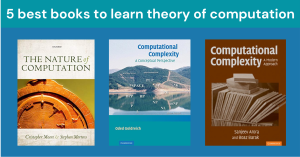
5 best books to learn theory of computation
- Automata Theory: This branch studies abstract machines (automata) and the problems they can solve. It includes various models such as finite automata, pushdown automata, and Turing machines. Each model represents a different level of computational power.
- Formal Languages: This area focuses on the study of languages defined by formal grammars. It examines how these languages are classified and the relationships between them.
- Computability Theory: This branch investigates the fundamental limits of what can be computed. It explores concepts such as decidability.
These areas are interrelated and provide a foundation for understanding algorithms, complexity theory, and the design of computational systems.
The Theory of Computation helps computer scientists and engineers design efficient algorithms, understand the limits of computation, and develop new computational models.
Why To Learn Theory Of Computation
Learning the Theory of Computation is valuable for several reasons, both theoretical and practical:
- Foundational Knowledge: Understanding the fundamental principles of computation provides a strong foundation for all areas of computer science.
- Algorithm Design: The Theory of Computation equips you with tools to analyze and design algorithms effectively.
- Problem Classification: This can guide you in determining whether a problem is solvable with a given approach or if it requires a different strategy.
- Understanding Limits: It reveals the inherent limits of computation, such as undecidability and intractability.
- Compiler Design: The principles from automata theory and formal languages are crucial for designing and implementing compilers and interpreters.
Uses of theory of computation
The Theory of Computation has a wide range of applications across different fields of computer science and beyond. Here are some key uses:
1) Compiler and Interpreter Design
- Lexical Analysis: Automata theory helps in creating lexical analyzers that tokenize input source code.
- Syntax Analysis: Context-free grammars are used to build parsers that check the syntactic correctness of code.
- Optimization: Techniques from complexity theory and formal languages aid in optimizing code during compilation.
2) Algorithm Analysis and Design
- Complexity Analysis: Complexity classes such as P, NP, and NP-complete help in understanding the computational resources required by algorithms.
- Algorithm Efficiency: Insights into decidability and tractability help in designing efficient algorithms and data structures.
3) Formal Verification and Validation
- Model Checking: Automata theory is used to model and verify the behavior of software and hardware systems to ensure they meet specified requirements.
- Proofs of Correctness: Theoretical concepts are used to prove the correctness of algorithms and systems.
4) Artificial Intelligence and Machine Learning
- Computational Models: Understanding Turing machines and their variants helps in designing and analyzing machine learning algorithms and neural networks.
- Complexity of Learning Tasks: Complexity theory provides insights into the feasibility of various learning tasks and algorithms.
5) Cryptography
- Security Protocols: Complexity and computability concepts are used to design secure cryptographic protocols and understand their security guarantees.
- Encryption Algorithms: Theoretical foundations help in analyzing the strength and efficiency of encryption algorithms.
5 Best Books To Learn Theory of Computation
Here are 5 Best books according to our research mentioned below:
1) The Nature of Computation
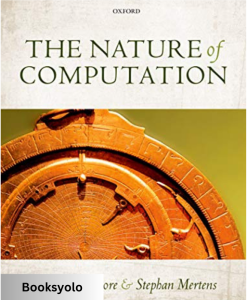
The Nature of Computation
The Nature of Computation by Cristopher Moore and Stephan Mertens is a book that provides a comprehensive introduction to the fundamental concepts of computation.
It explores both the theoretical underpinnings and practical aspects of computation in a way that is accessible to readers with a background in mathematics or computer science.
Overall, Moore and Mertens’ book is celebrated for its clear explanations and engaging examples. It serves as an excellent textbook for academic courses and a valuable reference for researchers and practitioners.
Its blend of theoretical rigor and practical relevance makes it an essential read for anyone interested in the nature and limits of computation.
2) Computational Complexity
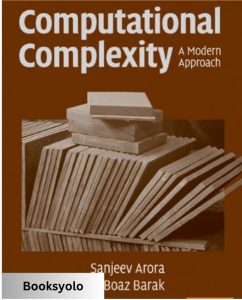
The Nature of Computation
Computational Complexity by Christos H. Papadimitriou is a seminal textbook in the field of computational complexity theory.
The book provides a comprehensive introduction to the study of computational problems and their inherent difficulty, exploring the limits of what can be computed and how efficiently.
Overall, Computational Complexity by Christos H. Papadimitriou is a foundational text in computational theory.
It offers a deep and accessible exploration of the complexity of computational problems, making it a crucial resource for anyone studying or working in the field of computer science.
A significant portion of the book is devoted to exploring NP-completeness, including detailed discussions on reductions and proofs of NP-complete problems, which are central to understanding the difficulty of computational problems.
Papadimitriou also covers space complexity, highlighting classes like PSPACE and the challenges of problems requiring significant memory.
3) Introduction to the Theory of Complexity
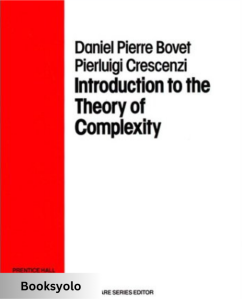
Introduction to the Theory of Complexity
Introduction to the Theory of Complexity by Christos H. Papadimitriou is an authoritative text that provides a comprehensive introduction to complexity theory, a crucial area of theoretical computer science.
This book is designed to offer both a solid foundation in the core concepts of complexity theory and an understanding of its practical implications.
Key Features
- Rigorous Exposition: The book is known for its rigorous approach to complexity theory, providing a thorough and detailed treatment of fundamental and advanced topics.
- Illustrative Examples and Exercises: It includes numerous examples and exercises that help in understanding and applying complex concepts, making the material accessible and engaging.
- Historical and Modern Perspectives: Papadimitriou integrates historical context with contemporary developments, offering readers a well-rounded view of the evolution of complexity theory.
In summary, Introduction to the Theory of Complexity by Christos H. Papadimitriou is a foundational text that provides a comprehensive and rigorous introduction to complexity theory.
It balances theoretical depth with practical applications, making it an essential resource for students, educators, and researchers in computer science.
4)Art of Computer Programming,
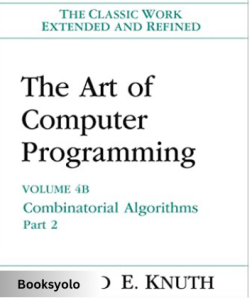
Art of Computer Programming,
The book is known for its meticulous attention to detail, including extensive coverage of both theoretical and practical aspects of computer science.
5) Computational Complexity Theory
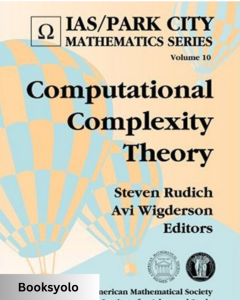
Computational Complexity Theory
Computational Complexity Theory by Mihai Patrascu is an authoritative text that offers a comprehensive introduction to the field of computational complexity theory.
This book is designed to provide readers with a deep understanding of the complexity of computational problems and the theoretical limits of what can be computed efficiently.
In summary, Computational Complexity Theory by Mihai Patrascu is a comprehensive and rigorous introduction to the field of computational complexity.
Its detailed treatment of both foundational and advanced topics makes it an essential resource for students and researchers in theoretical computer science.
Conclusion
The Theory of Computation serves as the foundational framework for understanding the capabilities and limitations of computational systems.
It encompasses several core areas, including formal languages, automata theory, and computational complexity, each of which provides essential insights into how problems can be formulated, solved.
At its core, the Theory of Computation addresses fundamental questions about what can be computed and how efficiently.
Through models like finite automata, pushdown automata, and Turing machines, it defines the boundaries of what can be achieved with different types of computational systems.
These models help in understanding the power of various computational devices and the nature of algorithmic processes.
Read More Books;


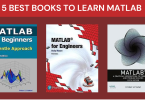
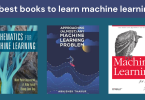
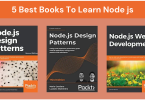
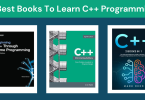
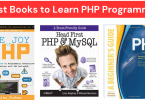
Leave a Comment